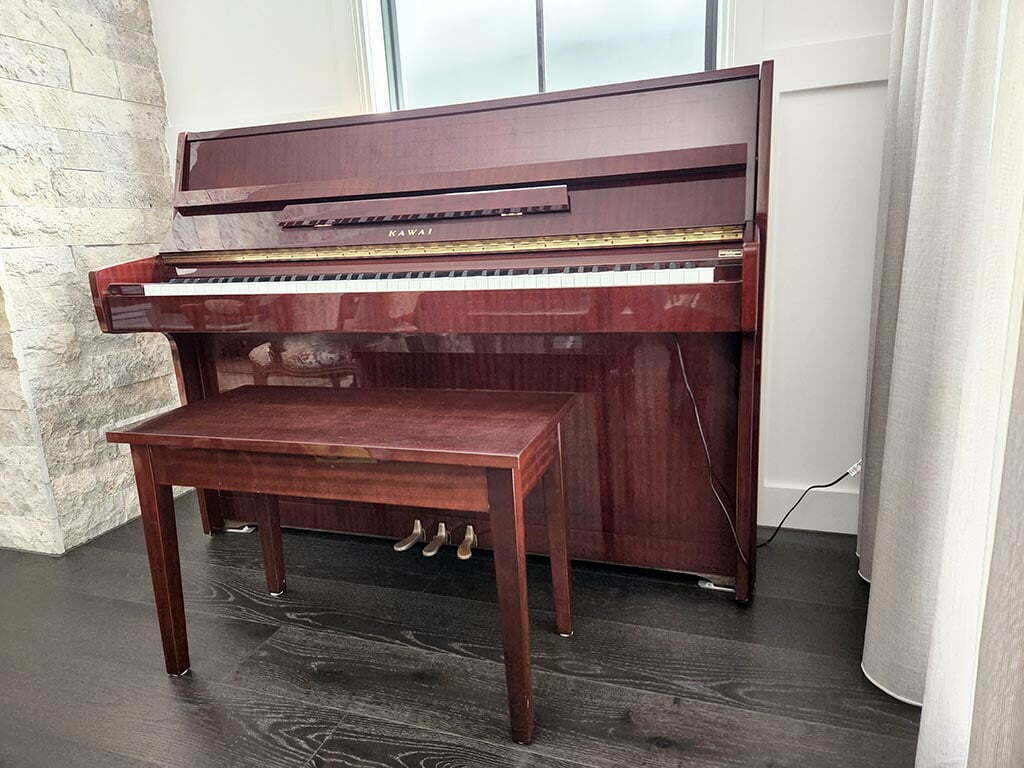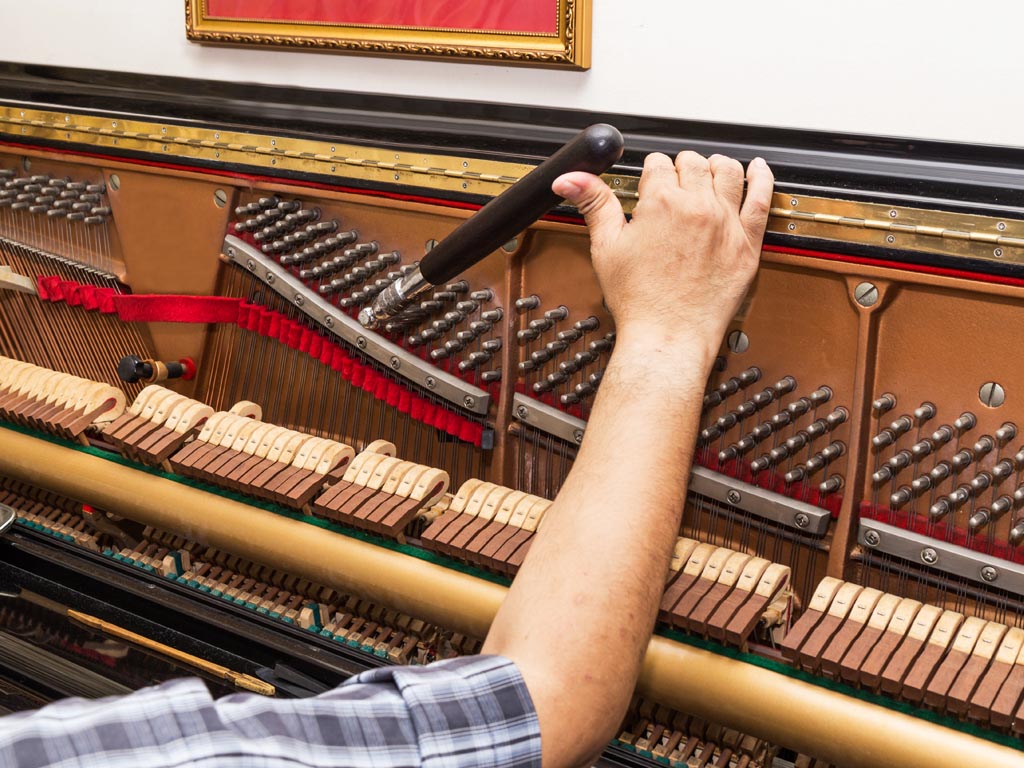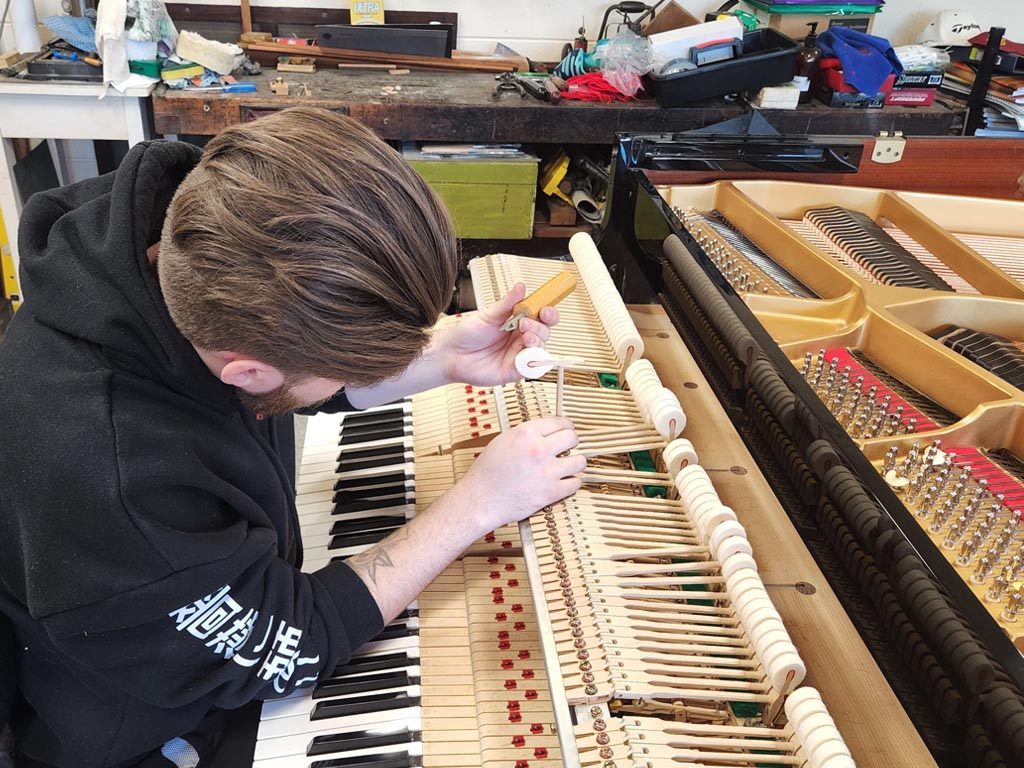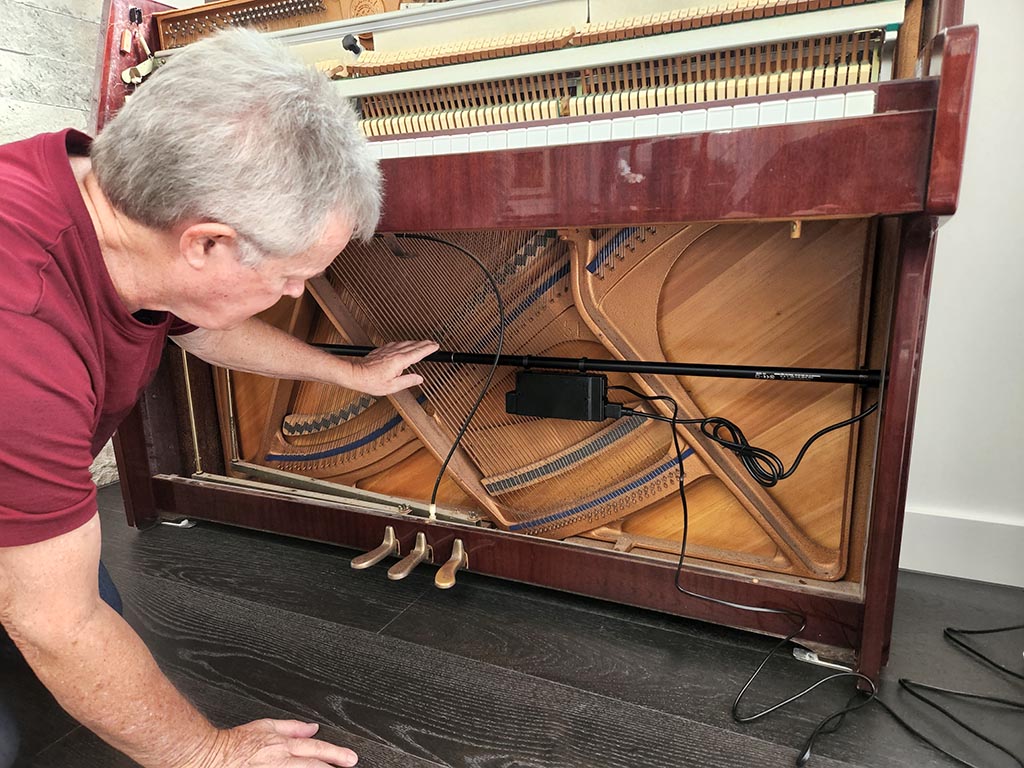FAQ
Positioning your piano
Where do I position my piano?
While we understand your piano’s placement is affected by structural and space constraints of your home, we encourage you to consider the following suggestions.
Where possible your piano should be placed on an inside wall, away from direct sunlight, air conditioners, fireplaces, windows, and doors. These measures will help to preserve your piano’s overall condition and tuning stability.
What happens if your piano is in direct sunlight even for just a few hours a day?
:: the piano finish can fade.
:: the sound board can dry out and crack.
:: glue joints can become weaker and dry out.
What happens if your piano is near a window or door?
Windows can throw off heat, let warm and cold air in and are subject to atmospheric conditions, temperature and humidity from the outside daily. These constant changes greatly cause your piano’s tuning stability to suffer and cause parts to swell or shrink which results in poor mechanical condition and performance.
What happens if your piano is near an air conditioner or fireplace?
Like being place near a window or door; air conditioners and fireplaces all contribute to an unstable environment around your piano.
Should I put my piano on castor cups?
Grand piano castors are quite large compared to the size of the upright castors. Once your piano is in its correct position placing your piano on castor cups can protect your floor coverings, such as carpet, wood or tiles.

Where do I place my Grand Piano?
Your Grand piano sounds best when the straight edge is placed against an inner wall and in a position where the pianist can look out into the room. Positioned this way will project the best sound into the middle of the room. Your grand piano can also be placed at a 45-degree angle in a diagonal corner.
Where do I place my Upright Piano?
Upright room placement is slightly different and less involved than the Grand room placement. Your upright piano should be placed on an inside wall approximately 9 to 10 cm from the wall, away from direct sunlight, air conditioners, fireplaces, windows, and doors. These measures will help to preserve your piano’s overall condition and tuning stability.
FAQ
Tuning your piano
How do I know if my piano needs to be tuned?
How often should my piano be tuned?
If your piano has gone for a year without being tuned, it’s probably out of tune. Generally a piano should be tuned twice a year because changes to pitch can occur due to changes in humidity, temperature and other factors. In some regions the pitch will rise in summer and fall in winter, whilst in other regions the opposite will happen.
How do you tune a piano?
Common tools for tuning a piano include a tuning hammer or lever, a variety of mutes and a tuning fork or an electronic tuning device. The tuning lever is used to turn and set the tuning pins, increasing or decreasing the tension of the strings. Mutes are used to silence the string not being tuned.

What is concert pitch?
A piano is designed to perform and sound at its best when tuned to A440Hz concert pitch (international standard pitch). This pitch enables you to play along with other instruments tuned accordingly. However, not all pianos can be tuned to concert pitch because of their age or poor condition.
FAQ
Regulating your piano
What is piano regulation?
Your piano has seven moving parts to make one note play. Each part must move in unison to play at its optimum. When a piano leaves the factory, each of its parts are adjusted to a tolerance of a few tenths of a millimeter. This process is called action regulation because the wood and felt parts of the action can change dimension due to humidity and wear. The action must be checked sporadically to maintain its responsive qualities.
If I have my piano tuned regularly, why do I need to have it regulated?
While the tuning corrects the pitch on your piano it is only one aspect of a complete maintenance program. Regulation attends to the touch and uniform responsiveness of the action to ensure a wide dynamic range.
Do all pianos need to be regulated?
All grand and upright pianos need periodic regulation to perform at their best. Frequency of regulation depends on the amount of use, exposure to climatic changes, and the instrument’s age, and condition.

What are the signs that my piano need regulating?
If your piano displays a lack of sensitivity or a decrease in dynamic ranges, it’s a candidate for regulation.
FAQ
Other questions about your piano
What is voicing?
Your piano’s tone can be extremely different depending on your room. When in a room with hard floors the tone could be quite bright. The same piano in a room with thick carpet and thick curtains could have soft tone. If the tone is too bright or harsh the hammers can be softened by using toning needles. If the tone is too soft, lacquer can be applied to the hammers to make them harder.
Why do my piano keys stick when it rains?
Primarily, piano keys will stick because of an increase in humidity. A piano is a complex piece of machinery consisting of thousands and thousands of moving parts made mostly of wood. When humidity changes wood expands or contracts causing keys to stick or become sluggish.
Why do I need a dehumidifier?
When a two-piece dehumidifier is installed in your piano the humidistat senses when the humidity is too high. The dehumidifier carries moisture away from your piano. This will help with the prevention of sticking notes.

How should I clean my piano?
A quality damp leather chamois will work well for removing finger marks and cleaning the piano keys. For built up grime use a good quality non silicon furniture polish.